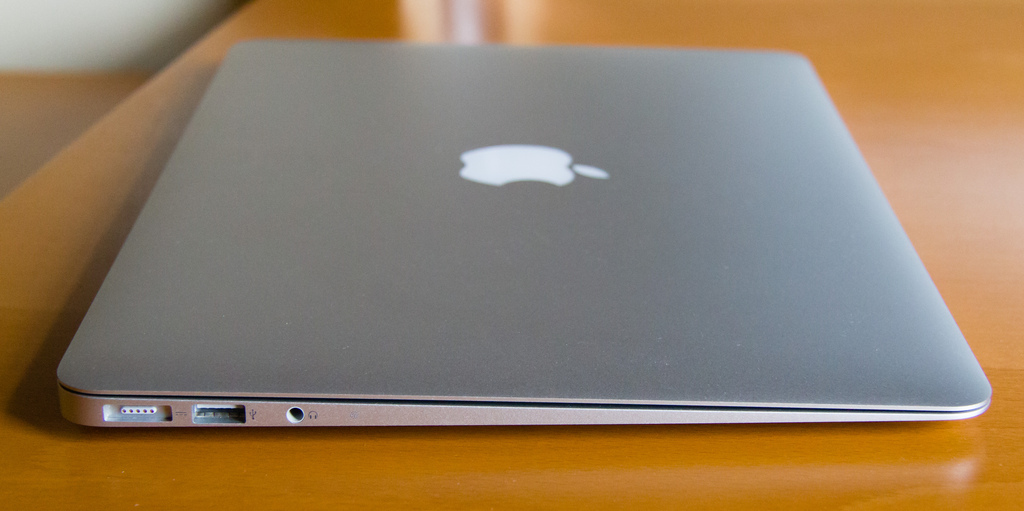Malware mining isn’t considered as a major risk by a lot of consumers and businesses. Even with their methods being relatively simple, exploiting basic vulnerabilities in a given system, people and organizations still aren’t taking major steps to put up cyber barriers.
The latest cyptojacking activity is reported to infect a number of Mac computers to harvest Monero, another type of cryptocurrency. Upon investigation, it was found out that a process called “mshelper” operating inside the Mac is being exploited in several affected machines.
Thomas Reed, the Malwarebytes director of Mac and mobile, said that along with a mixture of other malicious processes, this mshelper wasn’t “particularly dangerous,” although it did eat up a large amount of the central processing unit’s capacity.
"Affected users saw their fans whirring out of control and a process named 'mshelper' gobbling up CPU time like Cookie Monster,” Reed said. “Fortunately, this malware is not very sophisticated and is easy to remove.”
People who had their Macs affected posted in an Apple’s discussion forum where the knowledge of the malware spread among users. Finding the culprit resulted in uncovering a couple other suspicious processes that contributed to the attack.
Reed explained that there are three main factors to the cryptojacking malware. First is the dropper, a program responsible for downloading the miner. Second is the launcher, which installs and launches it. And the third is the miner itself based on XMRig, an open source Monero harvester.
While Malwarebytes hasn’t uncovered what the dropper program is, it’s suspected that it may be through a fake Adobe Flash Player installers or other software accidentally downloaded by the Mac owners. Reed said that whoever the attacker is probably isn’t familiar with Macs since the malware wasn’t particularly complicated. He added that he’d rather be hit by a cryptominer than other damaging malware like a spyware or ransomware.
Despite the sentiment, the Malwarebytes director said that even though this was a minor incident, it doesn’t bode well for the community as a whole. Among the major reasons that cryptojacking has proliferated is that complacency has been rampant among consumers and businesses alike because, as said earlier, it doesn’t pose a lot of security threats other than gobbling a large amount of CPU performance.



 Baidu Approves $5 Billion Share Buyback and Plans First-Ever Dividend in 2026
Baidu Approves $5 Billion Share Buyback and Plans First-Ever Dividend in 2026  Nvidia, ByteDance, and the U.S.-China AI Chip Standoff Over H200 Exports
Nvidia, ByteDance, and the U.S.-China AI Chip Standoff Over H200 Exports  Instagram Outage Disrupts Thousands of U.S. Users
Instagram Outage Disrupts Thousands of U.S. Users  SpaceX Updates Starlink Privacy Policy to Allow AI Training as xAI Merger Talks and IPO Loom
SpaceX Updates Starlink Privacy Policy to Allow AI Training as xAI Merger Talks and IPO Loom  Elon Musk’s SpaceX Acquires xAI in Historic Deal Uniting Space and Artificial Intelligence
Elon Musk’s SpaceX Acquires xAI in Historic Deal Uniting Space and Artificial Intelligence  Elon Musk’s Empire: SpaceX, Tesla, and xAI Merger Talks Spark Investor Debate
Elon Musk’s Empire: SpaceX, Tesla, and xAI Merger Talks Spark Investor Debate  OpenAI Expands Enterprise AI Strategy With Major Hiring Push Ahead of New Business Offering
OpenAI Expands Enterprise AI Strategy With Major Hiring Push Ahead of New Business Offering  Sony Q3 Profit Jumps on Gaming and Image Sensors, Full-Year Outlook Raised
Sony Q3 Profit Jumps on Gaming and Image Sensors, Full-Year Outlook Raised  Nvidia CEO Jensen Huang Says AI Investment Boom Is Just Beginning as NVDA Shares Surge
Nvidia CEO Jensen Huang Says AI Investment Boom Is Just Beginning as NVDA Shares Surge  Amazon Stock Rebounds After Earnings as $200B Capex Plan Sparks AI Spending Debate
Amazon Stock Rebounds After Earnings as $200B Capex Plan Sparks AI Spending Debate  Google Cloud and Liberty Global Forge Strategic AI Partnership to Transform European Telecom Services
Google Cloud and Liberty Global Forge Strategic AI Partnership to Transform European Telecom Services  Nvidia Confirms Major OpenAI Investment Amid AI Funding Race
Nvidia Confirms Major OpenAI Investment Amid AI Funding Race  AMD Shares Slide Despite Earnings Beat as Cautious Revenue Outlook Weighs on Stock
AMD Shares Slide Despite Earnings Beat as Cautious Revenue Outlook Weighs on Stock  Tencent Shares Slide After WeChat Restricts YuanBao AI Promotional Links
Tencent Shares Slide After WeChat Restricts YuanBao AI Promotional Links  SoftBank Shares Slide After Arm Earnings Miss Fuels Tech Stock Sell-Off
SoftBank Shares Slide After Arm Earnings Miss Fuels Tech Stock Sell-Off  SpaceX Pushes for Early Stock Index Inclusion Ahead of Potential Record-Breaking IPO
SpaceX Pushes for Early Stock Index Inclusion Ahead of Potential Record-Breaking IPO  SoftBank and Intel Partner to Develop Next-Generation Memory Chips for AI Data Centers
SoftBank and Intel Partner to Develop Next-Generation Memory Chips for AI Data Centers 






























